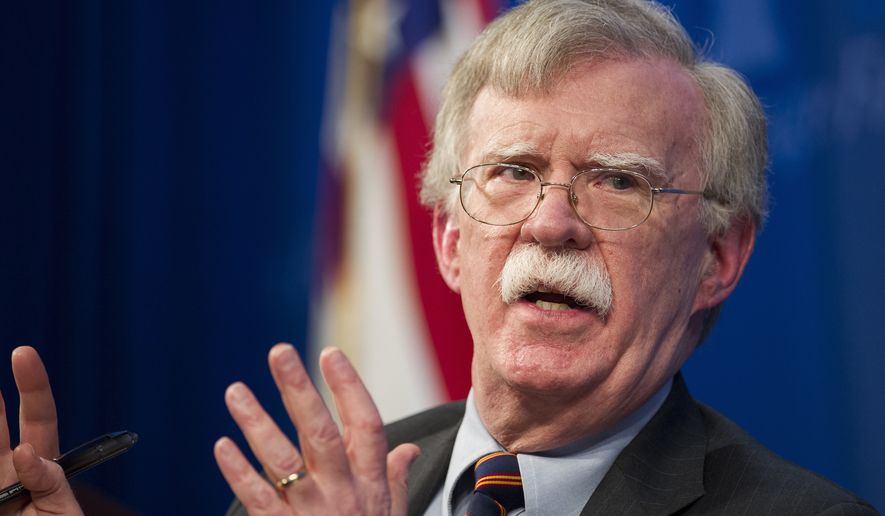OPINION:
It was March 2018 and Sen. Chris Murphy, Connecticut Democrat, was deeply disturbed. President Trump had just announced that John R. Bolton would serve as his third appointed national security adviser and Mr. Murphy, a thoroughgoing dove, was alarmed.
“John Bolton is being picked for the top non-confirmable national security job because a Senate that confirmed DeVos, Zinke, Price, and Pruitt will not confirm Bolton for anything [because] he is too extreme,” the senator tweeted. “Noodle that for a second.”
Now that Mr. Trump has heaved Mr. Bolton overboard, Mr. Murphy suddenly has second thoughts about Mr. Bolton’s place in the administration. It turns out, you see, that Mr. Bolton was a stabilizing influence.
“I’m legitimately shaken by the grave instability of American foreign policy today,” the senator tweeted after news of Mr. Bolton’s ouster emerged earlier this week. “I’m no Bolton fan, but the world is coming apart, and the revolving door of U.S. leadership is disappearing America from the world just at the moment where a stable American hand is most needed.”
So, just to get this straight: Mr. Bolton was too extreme, but removing him over policy disagreements — a normal part of any presidential administration — is a sign of “grave instability.” This gives new meaning to “damned if you do, damned if you don’t.”
Mr. Murphy is hardly the only hypocrite who decried Mr. Bolton’s appointment, only to furrow his brows and clutch his pearls over the now-former NSA’s defenestration.
House Speaker Nancy Pelosi, no fan of Mr. Bolton until roughly five minutes ago, decried his “sudden departure” as a “symbol of the disarray that has unnerved our allies since day one of the Trump Administration.” Senate Minority Leader Charles E. Schumer, New York Democrat, said that Mr. Bolton’s firing “is just the latest example of his government by-chaos-approach.”
He added, dishonestly, that “when Ambassador Bolton’s extreme views aren’t enough for you, the United States is headed for even more chaotic times.” But, of course, Mr. Bolton was fired precisely because the president found him too extreme on foreign policy, opposing his signature peace negotiations with North Korea and the Taliban, for instance.
Samantha Power, the former Obama administration official chalked up Mr. Bolton’s departure to “instability at the center of the government that is the most powerful in the world.” “NeverTrump” columnist Max Boot put it more hilariously than most: “John Bolton was bad. His departure might be worse.”
Mr. Bolton was reported to have supported launching preemptive military operations against Iranian targets. Wouldn’t that have been the definition of “instability”? Yet now that the chance of that happening has receded markedly, Mr. Trump’s political opponents can only carp about instability and chaos.
There’s an old saying that “if you find yourself in a hole, stop digging.” The Democrats apparently have a new line: “If you find yourself in a hole, don’t stop digging. After all, that would be a sign of instability.”
• Ethan Epstein is deputy opinion editor of The Washington Times. Contact him at eepstein@washingtontimes.com or on Twitter @ethanepstiiiine.




Please read our comment policy before commenting.